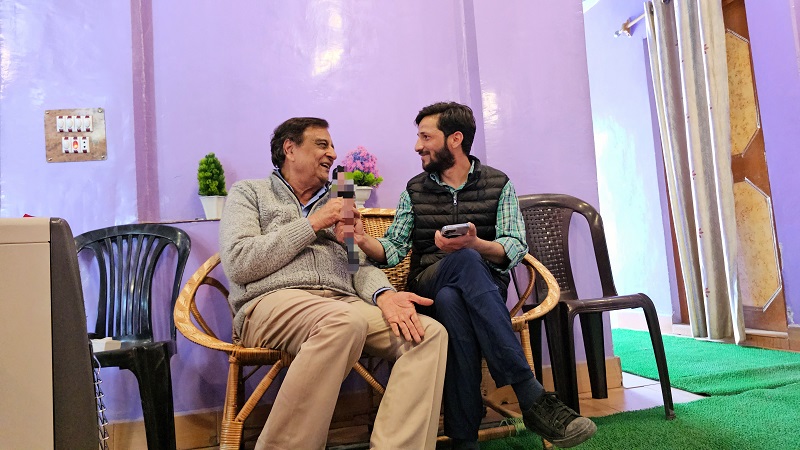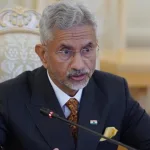KC Bokadia, the celebrated Indian filmmaker, has an illustrious career spanning numerous successful productions such as ‘Pyar Jhukta Nahin,’ ‘Teri Meherbaniyan,’ ‘Naseeb Apna Apna,’ ‘Hum Tumhare Hai Sanam,’ ‘Pyaar Zindagi Hai,’ and ‘Main Tera Dushman.’
His directorial ventures include notable films like ‘Phool Bane Angaaray,’ ‘Police Aur Mujrim,’ ‘Insaaniyat Ke Devta,’ ‘Aaj Ka Arjun,’ and ‘Kudrat Ka Kanoon.’ Additionally, he co-produced ‘Paap Ka Ant.’ Bokadia boasts an impressive portfolio, having worked on a total of 65 movies.“
In an interview with Rising Kashmir’s reporter, Umar Raina, KC Bokadia speaks about the revival of Bollywood in Kashmir valley.
You’ve mentioned that Kashmir offers an unparalleled backdrop for film shoots. What specifically draws you to this region for your upcoming movie?
Kashmir’s natural beauty is incomparable. The picturesque landscapes, serene lakes, and majestic mountains provide the perfect canvas for storytelling. For “Zindagi Namkeen Hai,” I believe Kashmir will add a unique flavor and depth to the narrative, enhancing the overall cinematic experience.
Your enthusiasm for Kashmir’s beauty is evident. How does it compare to other filming locations you’ve worked in, such as Switzerland?
While Switzerland is undeniably stunning, Kashmir holds a special place in my heart. Its beauty is raw, untouched, and has a certain authenticity that resonates with filmmakers and audiences alike. The diversity of landscapes in Kashmir, from lush valleys to snow-capped peaks, offers endless possibilities for storytelling. Moreover, filming in Kashmir also contributes to promoting tourism and showcasing the region’s cultural richness on a global platform.
It’s fascinating to hear your perspective. Considering your extensive experience in the industry, do you believe that Bollywood is returning to Kashmir, and if so, what factors are contributing to this resurgence?
Absolutely, Bollywood is gradually rediscovering Kashmir as a prime filming destination. The improved security situation, coupled with government initiatives to promote film tourism, has played a significant role in attracting filmmakers back to the region. Additionally, the ease of access and availability of modern film-making infrastructure have further facilitated the process. As more filmmakers like myself choose Kashmir for their projects, I believe we’ll see a sustained revival of Bollywood in the valley.
Your commitment to promoting Kashmir through your work is commendable. Would you consider venturing into film-making in Kashmiri language, and if so, what kind of stories would you like to explore?
Absolutely, I am eagerly awaiting the opportunity to create a film in the Kashmiri language. I firmly believe that cinema is a powerful medium for cultural exchange and preservation. If given the chance, I would love to collaborate with local talent and storytellers to bring authentic Kashmiri narratives to the forefront. Whether it’s showcasing the region’s rich folklore, history, or contemporary issues, I am committed to amplifying the voices of Kashmir through cinema.
Could you share your thoughts on the potential for establishing a film studio in Kashmir and its impact on the local community?
I firmly believe that establishing a film studio in Kashmir would not only boost the region’s economy but also create numerous opportunities for talented individuals. Beyond providing employment, a film studio can serve as a hub for creativity, innovation, and skill development. It would enable aspiring filmmakers, technicians, and artists from Kashmir to hone their craft and showcase their talent on a global scale. Moreover, it would foster collaboration and cultural exchange within the industry, further enriching the cinematic landscape of Kashmir.
Thank you, Mr. Bokadia, for sharing your insights and vision for the future of film-making in Kashmir. It has been a pleasure speaking with you.
The pleasure is mine, thank you for the engaging conversation, and I look forward to witnessing the continued growth and prosperity of Kashmir’s film industry.








